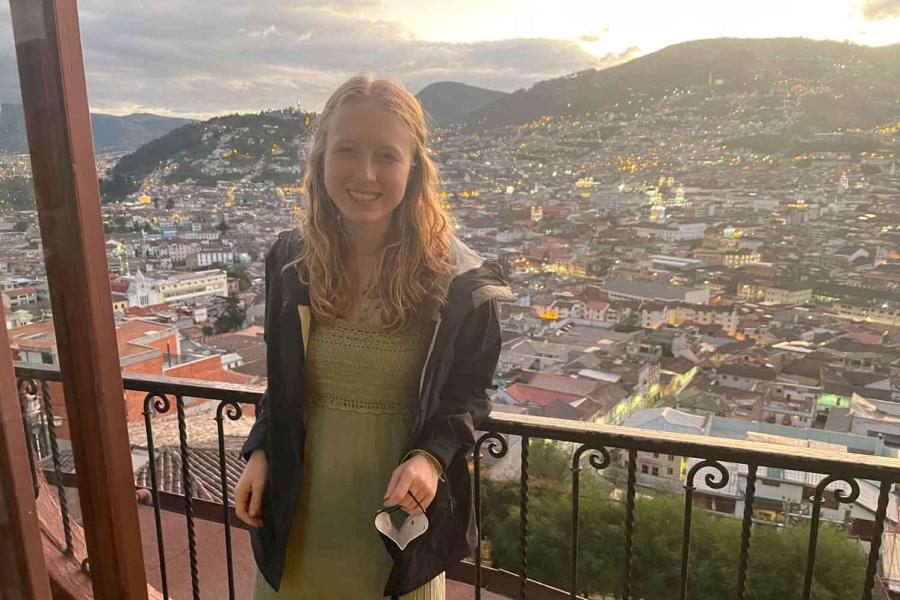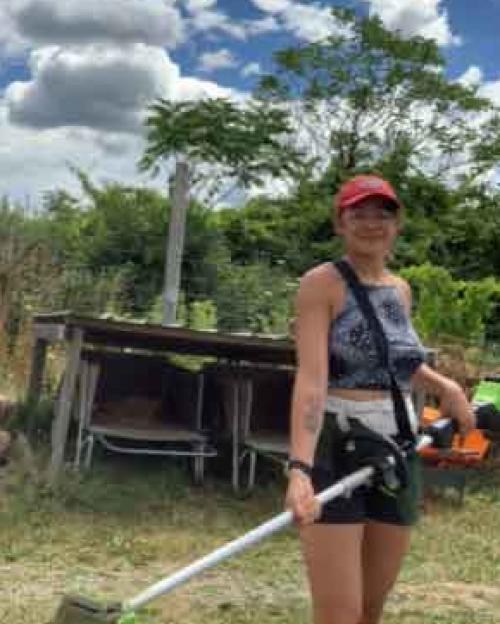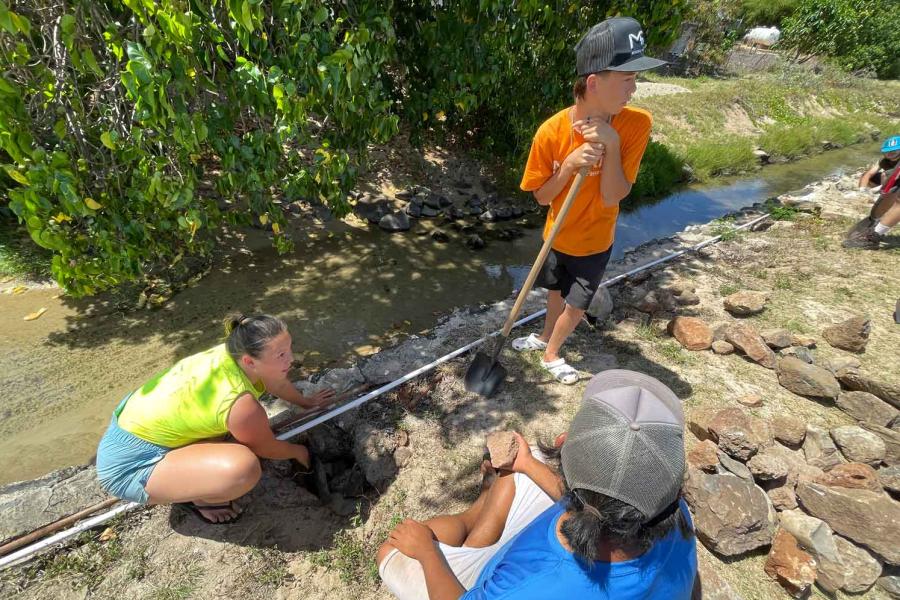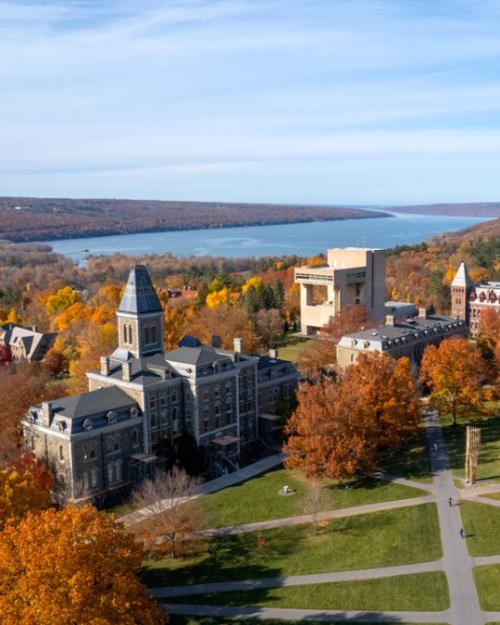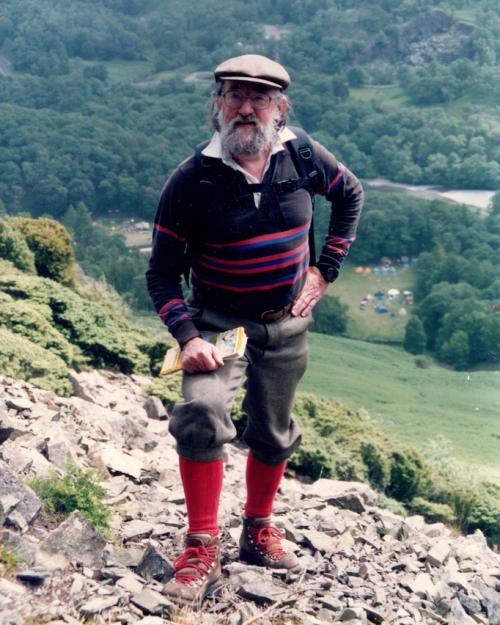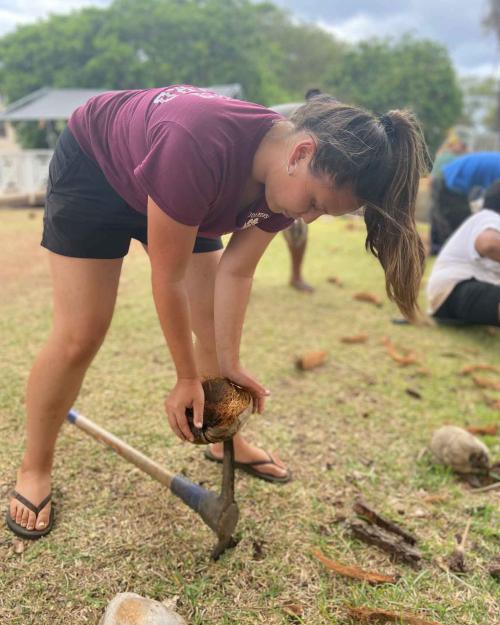From Ithaca to Hawaii to Ecuador, students in the Robert S. Harrison College Scholars Program in the College of Arts & Sciences took advantage of the summer as a time to explore their research interests.
The students — who create their own interdisciplinary course of study around a question or issue of interest — can receive summer funding from the program to pursue their research. Some of them also received other Cornell grants, including Summer Experience Grants, given to students who pursue low-paid or unpaid summer experiences.
For Hannah Drexler ‘24, the summer finally provided a chance for her to travel to Ecuador, where she is studying political polarization in the country, collaborating with Kenneth Roberts, the Richard J. Schwartz Professor in the department of government in the College of Arts & Sciences and Professor Paolo Moncagatta of Universidad San Francisco de Quito, Cornell's strategic partner in Ecuador under the Global Hubs model.
For her project, she helped to analyze a survey that asked Ecuadoran citizens about their impressions and involvement in politics. She also helped to organize and conduct in-person focus groups with 23 citizens. Since collecting the data, she’s been reviewing transcripts, coding responses and comparing the survey responses from both groups. The trio hope to write an article by the end of the summer.
“As a College Scholar, your senior research project is a great opportunity, but can also be a bit intimidating,” Drexler said. “I've gotten a really good taste from my work in Ecuador of what to expect with my own research project, which I think will prove to be tremendously helpful.”
For that project, she has been reading about how language — specifically names and labels — influences politics, people’s political stances and policy decisions. Her work is tying together the fields of linguistics, psychology, political science and literary theory. She’s also interested in the role of language in symbolic violence, non-physical violence based on a difference in power among social groups.
Drexler’s time in Ecuador also coincided with a two-week protest and city shutdown by indigenous people, demanding action on health care, education and rising inflation. “As a student studying politics, it’s been an interesting time for me to be here,” Drexler said.
Drexler, who is also majoring in English and minoring in Spanish and public policy, is living with a host family outside of Quito, which allows her to practice her Spanish constantly. Her trip and stay in Ecuador, part of a recently launched Internship Program in Ecuador, were made possible by the Latin American and Caribbean Studies Program (LACS) with funding from Cornell's Mario Einaudi Center for International Studies, a UISFL grant from the U.S. Department of Education, the Office of the Vice Provost for International Affairs and a Engaged Curriculum Grant from the David M. Einhorn Center for Community Engagement.
Focusing on holistic wellness
Bianca Garcia ’23 stayed closer to home, but still got way outside the classroom, working with Groundswell, a farming organization just outside of Ithaca that helps marginalized and disempowered people learn agricultural practices and start food-related businesses. Garcia’s interests lie in nutrition, medicine and anthropology.
She’s helped the organization with marketing and communications projects and is planning to conduct interviews with some farmers at the center, asking them how growing and sharing their own food has been healing or nourishing for them.
Garcia makes a distinction between the words “nutrition” and “nourishment” —“nutrition to me sounds like only a hard science, when you only think of protein and carbs and what food does to you on a molecular level. But nourishment is more holistic, more spiritual, more interpersonal. It’s thinking of the practice of growing food, about people’s history, culture and community.”
Nourishment has played a key personal role in Garcia’s life – her younger brother suffered for years with severe asthma but was helped tremendously by a change in diet. And her summer work as a health coach with a non-profit last year allowed her to counsel people on nutrition, sleep and balance and she witnessed extreme changes in blood sugar and blood pressure levels in some of her clients.
Along with her College Scholar major, Garcia is minoring in nutrition and science and technology studies. Because of her interest in science communication, she’s also working on the Meat and Three podcast on the Heritage Radio Network. She received the Freedman Award from the anthropology department to help pay her summer expenses.
Attacking waste issues in the islands
Abigail Kraus '23 spent much of her summer in Hawai'i, working with an environmental organization trying to restore a traditional fish pond on the north shore of O'ahu.
“The pond was once a vibrant and fully-functioning ecosystem used to provide fish for chiefs of the area,” she said. “Due to various development issues and a lack of maintenance, it has since suffered and we are now restoring the pond so it can provide food for the surrounding community.”
Kraus is interested in the intersection between environment and culture. “I became connected to Hawai’i because my sixth-grade choir director was Native Hawaiian,” she said. “He introduced us to Hawaiian culture and history through music and it had a big impact on me.”
The organization she’s working with, the Mālama Loko Ea Foundation, also works to preserve Native Hawaiian culture through education, offering summer camps for kids that focus on cultural practices, land stewardship and food sustainability. Kraus has also helped with those camps.
“I’ve learned so much since being here,” Kraus said. “I’ve discovered that I learn best by doing. Engaged learning has changed my whole world.”
Another summer project for Kraus has been the development of a zero-waste strategy for the non-profit. “Consumption in general is a huge issue in Hawai’i because tourism is so rampant,” she said. “And because it’s a series of islands, landfills and trash incineration affect every community.”
Because of her interests in a broad array of subjects, Kraus has taken a diverse set of classes so far at Cornell — in American studies, natural resources, anthropology, biology, American Indian & Indigenous Studies and environment and sustainability, to name just a few disciplines.
“That’s the beauty of the College Scholar program, being able to take classes that interest you and play the field,” she said. “I don’t really love having to fit into a box. But with this program, everything is available to me. I like that ability to explore.”

